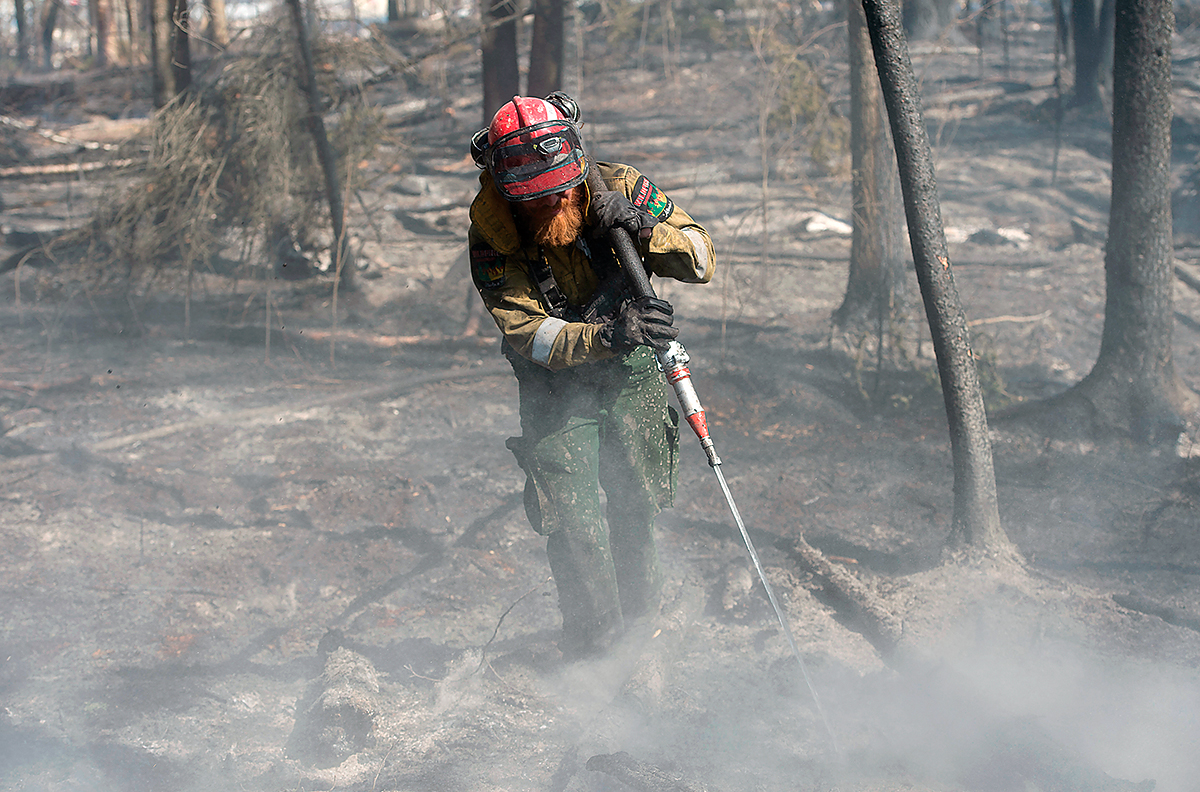In early May 2016, a large but relatively benign fire burning southwest of Fort McMurray, Alta., suddenly turned into a fierce blaze that became known as "The Beast." Dozens of fire crews from municipalities and wild-land forces from around the province and beyond worked to save the city.
As weary firefighters returned from the front lines, University of Alberta epidemiologist Nicola Cherry was there to measure the toll that heavy smoke and ash had taken on first responder respiratory systems.
Over the following weeks, Cherry's team tested more than 350 firefighters across the province.
Understanding how mental and physical hardships are affecting those who fought this enormous fire is at the heart of a special two-year, $500,000 grant from the Canadian Institutes of Health Research, the Canadian Red Cross, Alberta Innovates and other partners.
"Of the people who went to the fire, we want to know if they have any particular clusters of ill health that we didn't see in comparison groups," says Cherry.
With regard to mental health, Cherry says her team is focusing on the kinds of support systems that were in place in the more than 50 forces throughout Alberta that sent people to the fire.
This search for best practices also includes finding factors that might mitigate the health effects of fires, such as the type of masks firefighters were wearing and for how long.
"If one force did something that worked particularly well, we can recommend it to everybody else," she says.
Four other Fort McMurray fire-related research projects receiving funding:
Pediatric resiliency, Peter Silverstone, Department of Psychiatry
Health of Indigenous peoples and communities in the Regional Municipality of Wood Buffalo, Stephanie Montesanti, School of Public Health
Chemical contaminants in traditional foods from Fort McKay and Fort Chipewyan before and after the fires, Chris Le, '07 BSc, '13 MD, Department of Laboratory Medicine and Pathology
Improvement of perinatal outcomes following the fires, David Olson, Department of Obstetrics and Gynecology

We at New Trail welcome your comments. Robust debate and criticism are encouraged, provided it is respectful. We reserve the right to reject comments, images or links that attack ethnicity, nationality, religion, gender or sexual orientation; that include offensive language, threats, spam; are fraudulent or defamatory; infringe on copyright or trademarks; and that just generally aren’t very nice. Discussion is monitored and violation of these guidelines will result in comments being disabled.